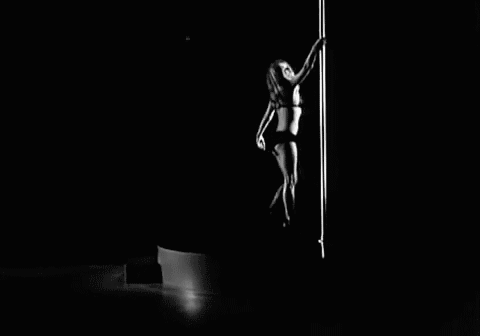Pole Dancers Using the #NotAStripper Hashtag Get Well-Deserved Pushback From Strippers
#YesAStripper

When the hashtag #NotAStripper began trending among pole dancers on Instagram, strippers took notice — and they’ve begun to share their responses via their own #YesAStripper hashtag. Pole dancing has picked up steam among hobbyists and fitness instructors, but because of the stigma against stripping, many exercise clubs have endeavored to distance themselves from pole dancing’s history. Many of the participants in the #NotAStripper hashtag make it clear that being a stripper would be a bad thing, and that’s why they want to distance themselves from that — even though they’re learning a form of performance that strippers have invented and perfected.
The Daily Dot spoke to some of the women who are pushing back against #NotAStripper, such as stripper and activist Elle Stanger, who said: “Students and teachers of pole dance who try to distance themselves from our art are only contributing to sex worker stigma. It seems silly that someone would pay to learn a skill, while trying to distance themselves from its origins.” Stanger has been using the #YesAStripper tag for over a year now.
Last year, the Daily Dot published a piece about the ongoing attempts on the part of exercise instructors to rebrand pole dancing as “pole fitness,” as well as their claims that the roots of the sport lie in Chinese pole. However, the moves taught in “pole fitness” classes don’t bear any similarity to Chinese pole. Kate Zen, a pole dancer who has experience with Chinese acrobatics, put it this way: “Chinese pole is an acrobatic form usually done by men, not by women. The Asian form has completely different moves. There is more appropriation of French ballet and Russian aerial than Chinese pole.” Matilda Bickers, a stripper and activist, believes that exercise instructors are trying to give pole dancing “a pseudo-spiritual orientalist face lift” rather than admit the true origins of the dances they teach.
It seems that modern “pole fitness” classes want to be able to appropriate techniques and aesthetics invented by strippers, but without any of the stigma. Rather than fighting against that stigma, these instructors would prefer to participate in it for their own gain. One of the more depressing quotes from these two articles comes from Buffie McLaskey, a pole dancer who clarified: “as you can see, I’m not a stripper. I’m just a regular person.” This frames strippers as not being “regular people” — and therefore not worthy of respect or credit for their work. It’s refreshing to see the #YesAStripper gaining prominence and spreading awareness about how this stigmatization works.
(via The Daily Dot, images via Instagram and Tumblr)
—Please make note of The Mary Sue’s general comment policy.—
Do you follow The Mary Sue on Twitter, Facebook, Tumblr, Pinterest, & Google +?
Have a tip we should know? [email protected]